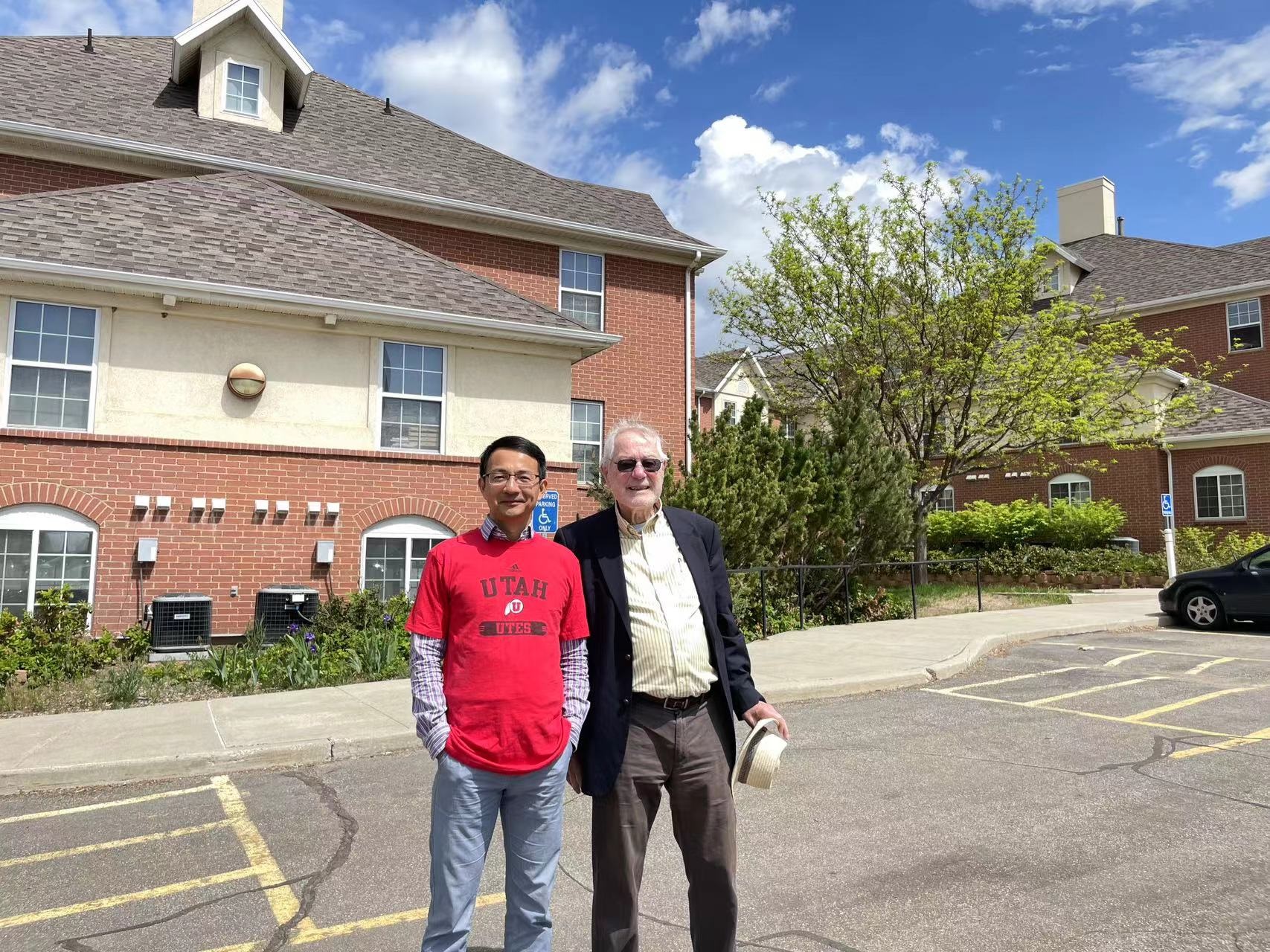Executive MPA Alumni Class 2011: Wei Zhen
Wei Zhen, alum of the Hainan XMPA cohort of 2010 was recently visiting Salt Lake City and wanted to say a few words regarding his expeirence in the program. Wei Zhen is currently working for a private firm that operates multiple airports around Hainan Province but was formally with the Hainan Province Department of Foeign and Overseas Chinese Affairs Office.
We asked Wei some questions regariding his experience in the program and advice for incoming students:
What are some of your past careers, and how did your MPA lead to your new career?
Before my MPA education, I had been a research assistant in China National Institute for South China Sea studies for one and half years and then a government employee as a legal consultant in Hainan Provincial Foreign Affairs Office for about three years.
After my graduation from MPA program, my career has undergone a dramatic change. It not only helped me get promoted to the managerial position but also empowered me to dive into different sectors and industries.
On the one hand, it has great impact on my leadership style as the program which involved a lot of interactions with local leaders from the public sector. I found that political leaders and government mangers don’t have to be serious-looking stereotype and can be easy going, charismatic, interesting, and even with strong personality. When I was promoted as one of the youngest managers in my department, partly due to my foreign MPA education background, I tried to change traditional hierarchical culture and foster an equal peer-peer and mutual respect culture within my team. My unconventional approach did not undermine my leadership, instead it helped me to win wide popularity.
On the other hand, extensive design of the MPA program which ranges from program evaluation, economic analysis, to quantitative and qualitative analysis offered me enough tools available to try different sectors, industries and lines. During the last twelve years after my graduation, I have experienced three different industries namely real estate, airport, shopping mall in addition to the government. And I have acted as the director of the legal team, investment team, retailing team and a general manager. I can not imagine how to deal with tons of data and challenging managerial problems without MPA education.
For my future career, I am thinking about starting my own business and perhaps exploring the non-profit sector afterwards. And I believe the managerial skills that I learned from the program can be trans-boundary and continue to fuel my career.
What was your favorite part of the program?
It must be quantitative research. As a law student, I used to take politics, law and management as art for granted, I came to learn that it can be political science, legal science and managerial science. Quantitative research change my scenario of causal relationship from intuitive to mathematical logic. Tools like statistics make a big difference in case study of my legal work, different variables that may affect the judgment are evaluated in data analysis which is not always right but does have an edge in terms of possibility. It also affects my daily life, for instance, in regarding to the outlook of the pandemic, I would lean to the report based on quantitative analysis in comparison to the news or personal experience. In short, I used to think like a lawyer, now I try to think like a scientist.
What advice would you give to incoming or current MPA students?
I would like to give two advice for MPA students. The first is to build solid quantitative foundation which will enable you to cross different subjects, foster a cross-disciplinary approach and in turn broaden your horizon. Your tool box will be enriched and your career will be widened.
The second is to try both public sector and private sector. Getting access to the public sector is more like a macro approach while that of the private sector is more like a micro approach. Experiencing different sectors will hopefully help you to foster a holistic approach. Working in the private sector will not only empower you business analytical tools that can be used in public sector, but also help you to understand how business may react to the public policy. And the entrepreneurship rooted in the private sector will probably enable you think like an entrepreneur when you come back to the public sector. Finally, you may find a niche for a public-private cooperation for a greater good like what I am exploring now.

Picutre: Wei Zhen (left) and Steve Ott (right)
Categories
Featured Posts
Tag Cloud
- XMPA (1)
- Alumni (2)
- Wei Zhen (1)
- Class 2011 (1)
- Faculty (1)
- Nonprofit (1)
- Community (5)
- MPA (6)
- Jesus Valero (1)
- Homeless (1)
- Community Engaged Learning (3)
- Management (3)
- Non Profit (3)
- Garth Jones (1)
- University of Utah (1)
- Public Administration (2)
- Open Letter (1)
- George Floyd (1)
- Anna Brower (1)
- Clayton Scrivner (1)
- Jan Bents (1)
- Nate Talley (1)
- Faculty Highlight (1)
- Cuba (1)
- Travel (1)
- Classwork (1)
- Volunteer (1)
